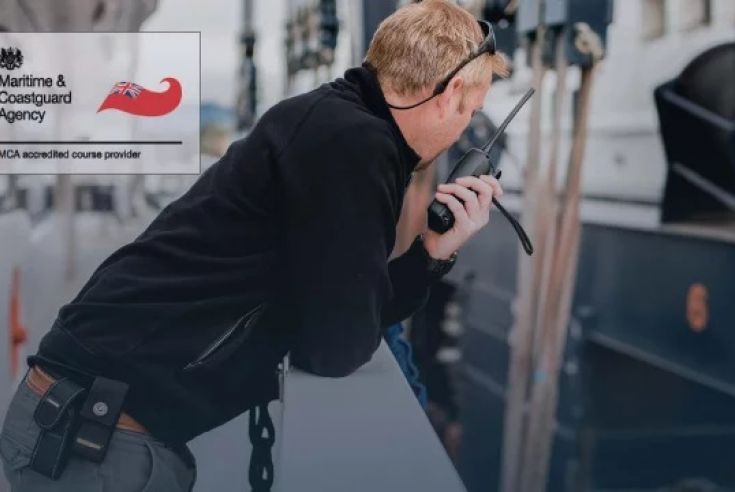MCA Approved Engine Course (AEC 1 & 2) Certificate
1915 South Andrews Avenue, Fort Lauderdale, FL 33316
1,099 $
EnquireSchool MPT
Location 1915 South Andrews Avenue, Fort Laude...
Duration 5 day(s)
Dates Contact for more info
Accommodation None Included
Approved Engine Course - Course #440
This is a 5 day course designed for engineering candidates pursuing their MCA Approved Engine Course Certificate or for ambitious mariners desiring to improve their knowledge related to engineering fundamentals. This course is also an excellent addition to any deckhand, mate or captains resume! Students come from all over the world for this course. It is open to everyone.
To be considered certificated in AEC, the MCA requires the following:
- AEC course certificate
- STCW Basic Safety Training Courses (within the previous five years)
- ENG1 Medical Fitness Certificate
- 30 days of vessel sea service familiarization
- Be at least 18 years of age
This course follows the MCA syllabus for the 30 hour Approved Engine Course Certification. This is an entry level engineering course. The objective of this course is to provide the candidate with the knowledge to serve in an entry level capacity in the engineering department or for a crewmember primarily working in another department to assist with engineering functions. It is not a diesel mechanics course and will not include the tearing down/rebuilding of engines.
The AEC course does include valuable classroom training and laboratory knowledge familiarization.
Classroom Training/Theory Subjects Include:
Diesel engines
Compression ignition engine (general principles)
Cycle of operation and constructional details
Fuel system
Aspiration Methods: The role of air in the combustion process
Cooling system
Lubrication system
Engine electrical systems
Power transmission
Hull fittings
MARPOL Pollution legislation
Code of Safe Working Practices
Bottled LPG installations
Fault finding and rectification
Laboratory Subjects Include:
The instructor will: Help students identify engine types, parts & systems
The instructor will: Use shop models to explain various engineering systems
The MPT AEC Course will therefore enhance your ability to perform the typical tasks needed onboard as an entry level engineering department crew member or as a member of the deck department assisting in the engineroom. Once your AEC is completed if you wish to learn how to perform detailed diesel mechanics functions, such as break down and assembly of an engine, we recommend going through a technical/mechanical program or through engine and auxiliary equipment manufacturers course(s).
DAILY SCHEDULE:
Day 1
COMPRESSION IGNITION ENGINE;
The general principles of the compression ignition engine compared to the spark ignition engine.
Engine construction and identification of the main components.
Basic Terminology and engine terms
The 2 stroke cycle of operations.
The 4 stroke cycle of operations.
Interpretation of engine performance data.
Engine configurations.
AIR SYSTEMS;
Air:Fuel ratios,
Filters
Naturally Aspirated and Turbocharged systems
Intercoolers and Aftercooling
Exhaust systems, including silencers, water injection elbows and siphon breaks.
FUEL SYSTEM;
Diesel fuels,
Distillation of gas Oil and DERV.
System components, including all filter types and tanks.
Lift and injector pumps.
Injectors
Day 2
Lubrication SYSTEM;
Lubricating Oils and additives.
Function of lubricating oil.
Lubricating oil systems.
Lubricating oil pumps.
Lubricating oil filters and the functions of relief valves.
Tracing the lub oil system of engine in workshop including finding relevant books and info on the net.
COOLING SYSTEMS;
Combustion processes temperature effects on engine components.
Engine cooling water systems.
Raw and Freshwater cooling systems.
Heat exchangers.
Running temperatures and control thermostats.
Day 3
Cooling water system pumps.
STARTING SYSTEMS.
Electric
Inertia/Spring
Pneumatic
Hydraulic
Compressed Air
Overspeed and Stopping devices.
POWER TRANSMISSION;
Reduction and Reverse Gearboxes.
Clutches: Plate and Cone types. Mechanical and hydraulic modes of operation.
Control systems.
Propeller shafting and couplings.
Shaft bearings
Stern tubes and sealing arrangements.
Propellers.
Day 4
ELECTRICAL SYSTEMS;
Lead acid and alkaline batteries
Alternators and drives.
Battery charging and split charging arrangements.
Basic circuit diagrams and engine instrumentation.
Safety features in the electrical distribution system.
Brief look at engine in workshop
HULLFITTINGS;
Annual inspection and surveys
Maintenance of Seacocks & Shipside Valves.
Corrosion & Cathodic protection systems.
GENERAL;
Marine pollution legislation. Annex I & V
Code of Safe Working Practices.
Awareness of potential fire hazards and the dangers of asphyxiation in the use
of CO2 and Halon smothering systems.
Safety consciousness.
Bottled LPG Installations.
NB. Faultfinding and rectification will be covered in each part of the syllabus.
Day5
end of course exam and assessments
What's Next:
Further foundational knowledge & understanding of the engineering concepts can also be gained by taking the #390 Y4 Pre Training 4 week Program that is also approved by the USCG towards a QMED (Qualified Member of the Engine Department) Rating as QMED Oiler (see additional requirements if applying to get your QMED Endorsement from the USCG). The actual Y4 Examination Courses are still required for candidates continuing to advance their engineering certification in the MCA System.
If you will be continuing in the MCA System, the Y4 Pre Course would be your next step and can be undertaken immediately. You can upgrade to MEOL after 24 months of service if desired or when you have reached the 42 months of service in the engineroom you would upgrade directly to Y4 by taking the Y4 examination & training package. Y3 courses can be taken at the same time as Y4 training and then with 9 months of additional service jump to Y3 then with more service and training, you will advance to Y2 and Y1 ultimately. An MPT career counselor can help you plan each step.
If you will be continuing in the USCG System, the QMED and then Assistant Engineer and then Second Engineering Officer and Chief Engineer represent your career path. An MPT career counselor can help you plan each step.



